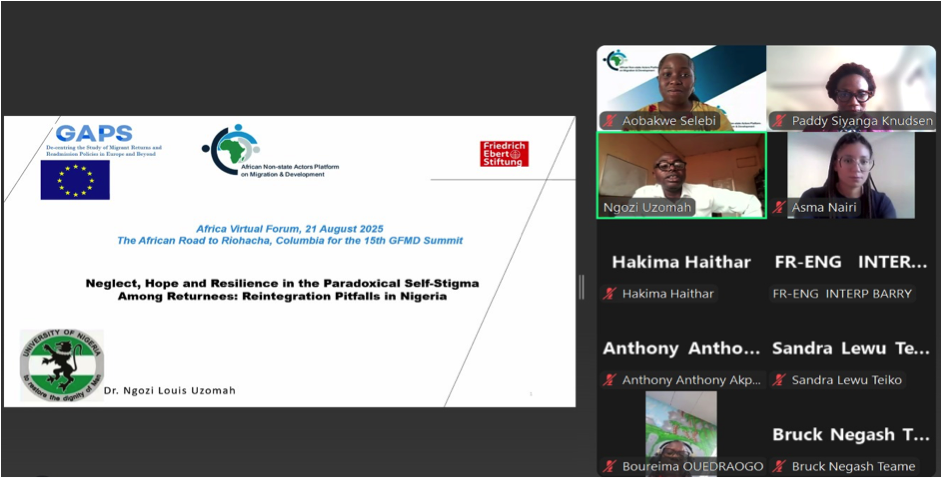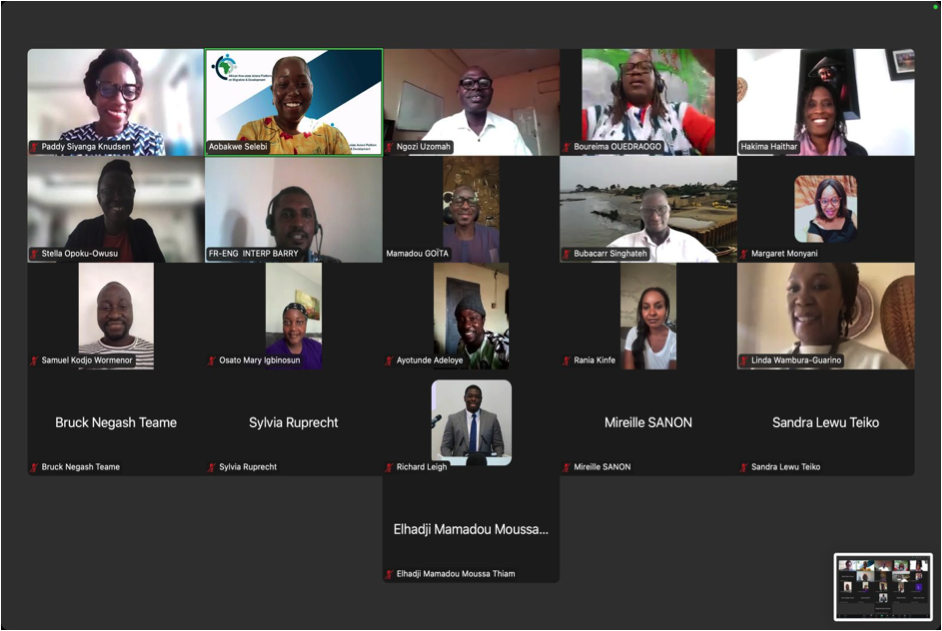GAPs Research Featured at Africa Virtual Forum
Dr. Ngozi Uzomah presenting GAPs findings at the virtual forum organized by African Non-state Platform on Migration and Development. Source: Paddy Siyanga Knudsen (2025).
On August 21, 2025, GAPs project research was showcased at the Africa Virtual Forum, organized by the African Non-state Platform on Migration and Development—a high-level initiative bringing together experts, policymakers, and academics to discuss pressing issues shaping migration governance across Africa.
Dr. Ngozi Louis Uzomah, GAPs researcher from the University of Nigeria, Nsukka, presented findings from the Nigeria case study. His presentation entitled “Neglect, Hope, and Resilience in the Paradoxical Self-Stigma Among Returnees: Reintegration Pitfalls in Nigeria” highlighted the complex realities faced by deported migrants, who often struggle with stigma, institutional neglect, and insufficient reintegration support.
Returnees, he explained, are frequently met with community suspicion and come to internalize the label of “failed migrants.” Reintegration programs, meanwhile, tend to be short-term and narrowly focused, offering small-scale financial aid and training while overlooking deeper psychological, social, and long-term reintegration needs. These gaps, Dr. Uzomah argued, often produce paradoxical self-stigma that manifests as withdrawal, anger, or aggression—behaviors misread as personal flaws rather than survival strategies against stigma and neglect.
Attendees at the virtual forum organized by African Non-state Platform on Migration and Development. Source: Paddy Siyanga Knudsen (2025).
Drawing on case studies such as Sonia (a returnee from Libya) and Emma (a deportee from Germany), Dr. Uzomah illustrated how returnees are excluded both by their communities and, at times, by the very institutions tasked with supporting them. He noted that assistance from IOM and GIZ is often fragmented and fails to respond to the specific circumstances of returnees like Sonia and Emma. Despite significant EU funding for Assisted Voluntary Return and Reintegration (AVRR) programs, many returnees fall into hopelessness and depression, finding resilience not in institutional support but in personal faith.
Dr. Uzomah concluded that sustainable reintegration requires a holistic approach—simultaneously addressing economic, psychological, and community dimensions.
Other speakers at the forum echoed the urgency of challenging dominant return narratives and embedding reintegration policies in dignity, rights, and sustainability. For the GAPs Project, this means decentering policy assumptions, interrogating the social and communicative practices shaping reintegration outcomes, and foregrounding migrant perspectives. In doing so, GAPs sheds light on how humanitarian framings can obscure coercion and weaken accountability, while offering evidence-based insights that recentre the lived realities of returnees, deportees, and migrants navigating stigma, discrimination, and institutional neglect.


